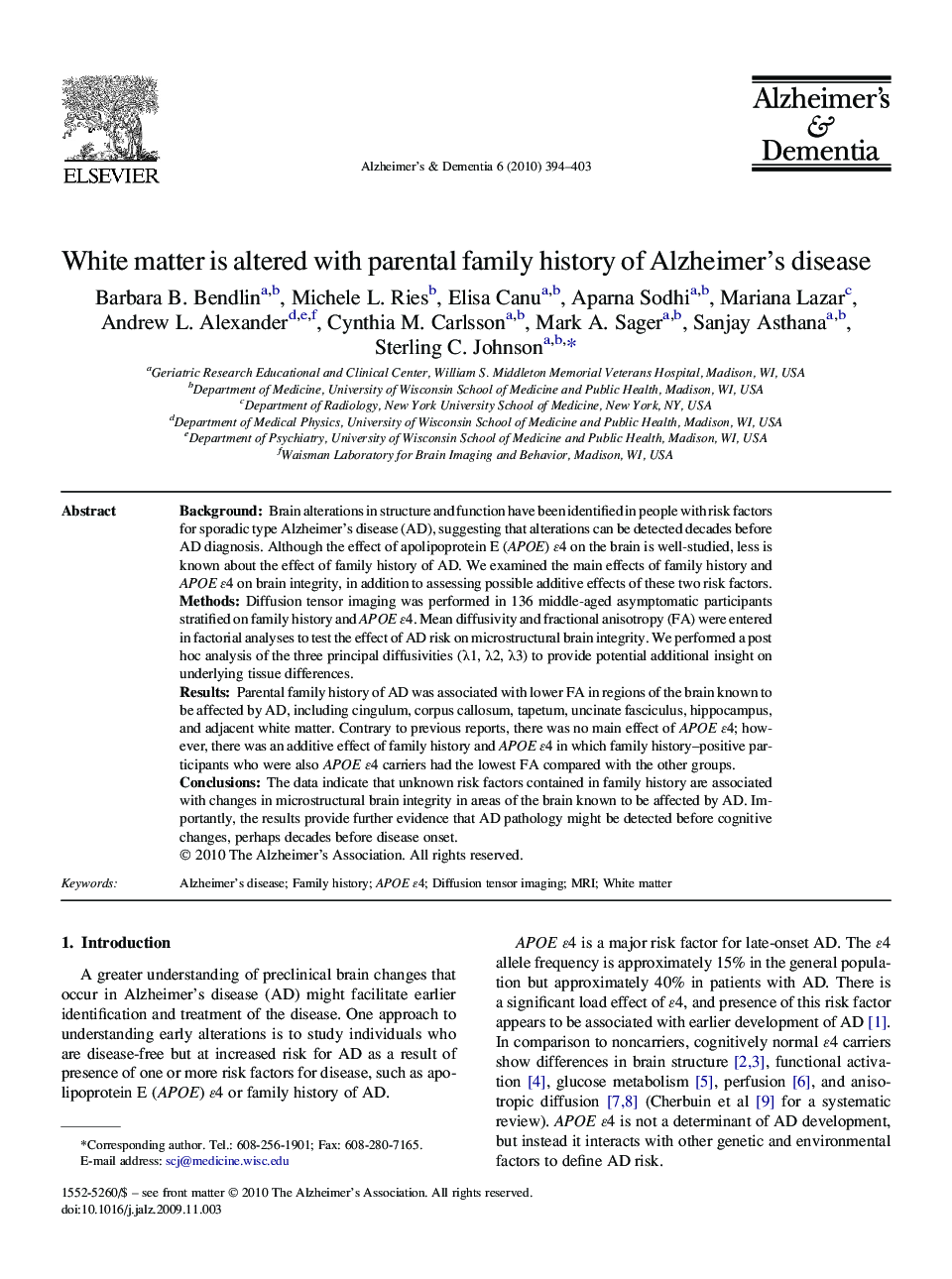| کد مقاله | کد نشریه | سال انتشار | مقاله انگلیسی | نسخه تمام متن |
|---|---|---|---|---|
| 5625002 | 1406264 | 2010 | 10 صفحه PDF | دانلود رایگان |

BackgroundBrain alterations in structure and function have been identified in people with risk factors for sporadic type Alzheimer's disease (AD), suggesting that alterations can be detected decades before AD diagnosis. Although the effect of apolipoprotein E (APOE) É4 on the brain is well-studied, less is known about the effect of family history of AD. We examined the main effects of family history and APOE É4 on brain integrity, in addition to assessing possible additive effects of these two risk factors.MethodsDiffusion tensor imaging was performed in 136 middle-aged asymptomatic participants stratified on family history and APOE É4. Mean diffusivity and fractional anisotropy (FA) were entered in factorial analyses to test the effect of AD risk on microstructural brain integrity. We performed a post hoc analysis of the three principal diffusivities (λ1, λ2, λ3) to provide potential additional insight on underlying tissue differences.ResultsParental family history of AD was associated with lower FA in regions of the brain known to be affected by AD, including cingulum, corpus callosum, tapetum, uncinate fasciculus, hippocampus, and adjacent white matter. Contrary to previous reports, there was no main effect of APOE É4; however, there was an additive effect of family history and APOE É4 in which family history-positive participants who were also APOE É4 carriers had the lowest FA compared with the other groups.ConclusionsThe data indicate that unknown risk factors contained in family history are associated with changes in microstructural brain integrity in areas of the brain known to be affected by AD. Importantly, the results provide further evidence that AD pathology might be detected before cognitive changes, perhaps decades before disease onset.
Journal: Alzheimer's & Dementia - Volume 6, Issue 5, September 2010, Pages 394-403